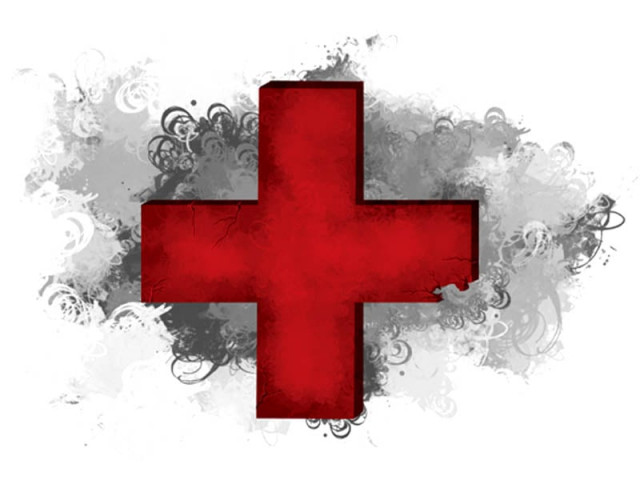Taking stock: Hospitals lack medicines to treat gastroenteritis
Doctors say 40% of patients coming to emergency wards have gastroenteritis.

“If a gastroenteritis patient comes to the emergency and IV liquid isn’t administered to him in time, his kidneys may fail and it may lead to death,” says a doctor working at the Mayo Hospital. PHOTO: FILE
The emergency departments at public hospitals are receiving high numbers of gastroenteritis patients but they don’t have enough money to buy the medicines needed to treat them.
Doctors in the city’s teaching hospitals said 40% of the people coming to the emergency departments for the last few days have been suffering from gastroenteritis.
The illness is characterised by diarrhoea and/or vomiting and can lead to severe dehydration, so rehydration is an essential part of the treatment. But some emergency departments do not even have intravenous (IV) fluids.
“If a gastroenteritis patient comes to the emergency and IV liquid isn’t administered to him in time, his kidneys may fail and it may lead to death,” said a doctor working at the Mayo Hospital emergency ward.
A large number of medicines at public hospitals are meant to be free, but many patients are being asked to buy their own because of the depletion of drug stocks, he said.
“We don’t have enough medicines to treat the alarming number of people with this complaint, so we ask their family members or friends who come with them to purchase medicines from outside the hospital. Most of the people who come here are the poorest of the poor. I don’t know how, but they usually manage to purchase medicines from outside,” he said.

A majority of the gastroenteritis cases appear to have come from something the patients ate or drank outside the home, or from ice bought from a stall, said a doctor at Jinnah Hospital. “The weather is very hot and the body needs minerals. Many patients get it from their unsafe water supply,” he said.
The doctor said that the emergency department was short of medicines and had asked the Health Department to release funds so they could buy them. “We were told there weren’t any funds available and it would not be possible to purchase anything new (equipment or medicine) till the new budget comes,” he said.
A doctor at Services Hospital said that power outages were adding to the poor conditions. “Working at the emergency department has become quite difficult. First, having to ask a patient’s attendants to bring medicines from outside puts one in an awkward position. Even drips have to be brought from outside. Then the air-conditioners aren’t working, so it’s very hot and uncomfortable here. So far all efforts and requests for alternative means for the purchase of medicines or uninterrupted power have failed,” he said.
A medical superintendent at a teaching hospital in Lahore said that some medicines were not available and that there was no money to buy them.
“We are still doing our best to provide treatment at our emergency ward. We have most medicines available,” he said.
A senior Health Department official said that the Finance Department was busy preparing the budget for the next financial year. He claimed that most hospitals had adequate stocks of medicine and if there were an emergency, the required medicines could be bought.
Published in The Express Tribune, May 27th, 2013.



















COMMENTS
Comments are moderated and generally will be posted if they are on-topic and not abusive.
For more information, please see our Comments FAQ